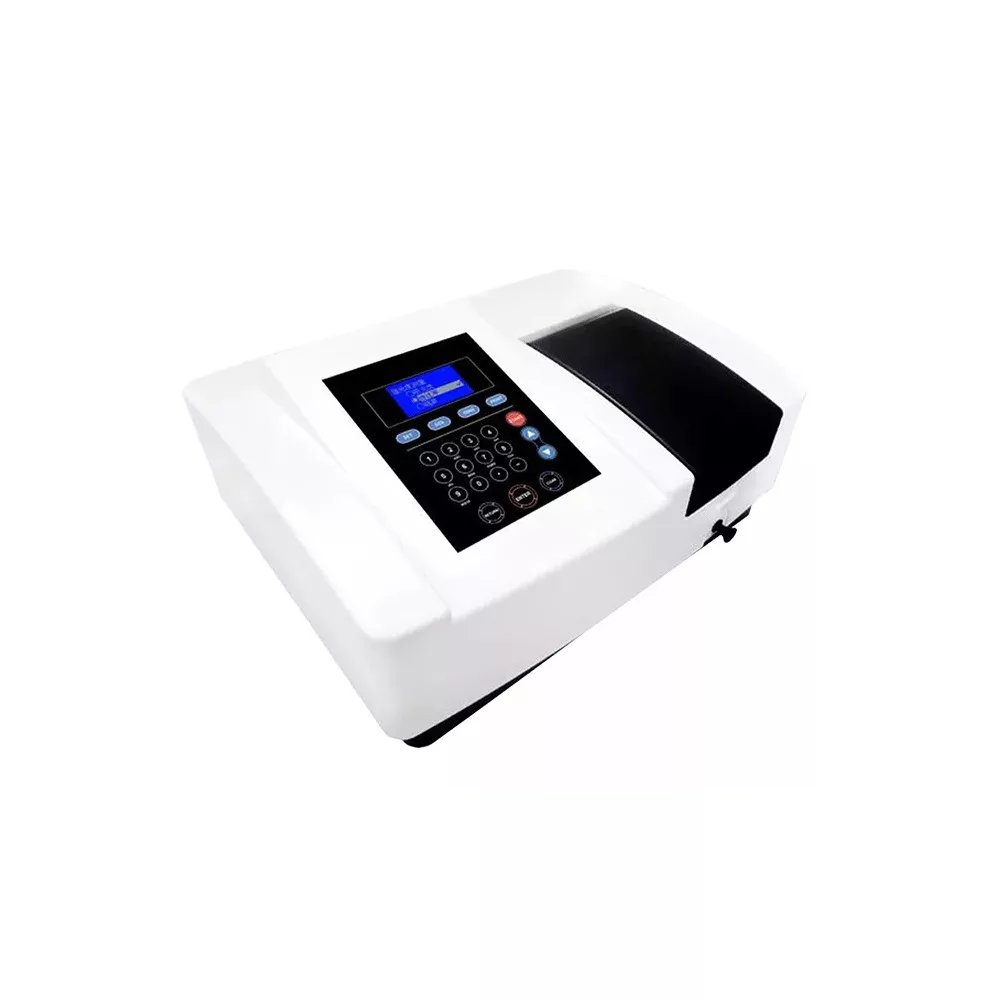The Ultimate Guide to Single Beam UV-Vis Spectrophotometers: Applications, Benefits, and Buying Tips
In the world of analytical chemistry, precision and accuracy are paramount. Whether you’re working in pharmaceuticals, environmental science, food safety, or material research, having the right tools is crucial for success. One such indispensable instrument is the Single Beam UV-Vis Spectrophotometer KSP/SB/10 . This powerful device allows scientists and researchers to measure the absorption or transmission of light by a sample across the ultraviolet (UV) and visible (Vis) spectrum.
If you’re new to spectrophotometry or looking to upgrade your lab equipment, this comprehensive guide will walk you through everything you need to know about single beam UV-Vis spectrophotometers. From their functionality and applications to key features and purchasing tips, we’ve got you covered.
What is a Single Beam UV-Vis Spectrophotometer?
A single beam UV-Vis spectrophotometer is an analytical instrument used to measure how much light a sample absorbs at specific wavelengths within the UV and visible range (typically 190–1100 nm). Unlike double-beam models, which split the light source into two beams—one passing through the sample and the other through a reference—single beam systems use one continuous beam of light that alternates between the sample and reference.
How Does It Work?
- Light Source : A lamp (usually tungsten or deuterium) emits light.
- Monochromator : Filters or prisms isolate specific wavelengths from the light source.
- Sample Holder : The sample solution is placed in a cuvette, allowing light to pass through it.
- Detector : Measures the intensity of transmitted light after interacting with the sample.
- Output : Data is displayed as absorbance or transmittance values, often plotted against wavelength.
This straightforward design makes single beam UV-Vis spectrophotometers cost-effective and easy to maintain while still delivering reliable results.
Key Advantages of Using a Single Beam UV-Vis Spectrophotometer
Why choose a single beam model over other types? Here are some compelling reasons:
1. Cost-Effectiveness
- Single beam systems are generally more affordable than double-beam alternatives, making them ideal for labs on a budget.
2. Compact Design
- Their simpler optical setup means they occupy less space, perfect for smaller laboratories.
3. High Sensitivity
- With only one beam path, these instruments can achieve excellent sensitivity and resolution.
4. Versatility
- Suitable for a wide range of applications, including quantitative analysis, quality control, and teaching purposes.
Despite not offering simultaneous measurement like double-beam spectrophotometers, single beam models remain highly valued for routine analyses where speed isn’t critical.
Common Applications of Single Beam UV-Vis Spectrophotometers
The versatility of single beam UV-Vis spectrophotometers ensures their widespread adoption across various industries. Below are some common uses:
1. Pharmaceutical Industry
- Drug formulation and purity testing
- Quantitative determination of active ingredients
- Dissolution studies
2. Environmental Science
- Water quality monitoring (e.g., detecting contaminants like heavy metals)
- Analysis of air pollutants
3. Food and Beverage Testing
- Determining nutritional content (e.g., protein, fat, vitamins)
- Detecting adulterants or spoilage markers
4. Material Research
- Characterizing optical properties of materials
- Studying polymer degradation or thin film coatings
5. Educational Purposes
- Teaching students fundamental principles of spectroscopy
- Conducting basic experiments in academic settings
Factors to Consider When Choosing a Single Beam UV-Vis Spectrophotometer
Selecting the right spectrophotometer requires careful consideration of several factors. Here’s what you should keep in mind:
1. Wavelength Range
Ensure the instrument covers the necessary UV and visible spectrum for your intended applications.
2. Accuracy and Precision
Look for models with high photometric accuracy and repeatability specifications.
3. Software Interface
User-friendly software can streamline data collection and analysis processes.
4. Durability and Maintenance
Opt for brands known for robust construction and readily available spare parts.
5. Budget Constraints
Balance performance requirements with financial limitations.
6. Additional Features
Some advanced models offer temperature control, multi-cell holders, or connectivity options for enhanced functionality.
Tips for Maintaining Your Single Beam UV-Vis Spectrophotometer
To maximize the lifespan and performance of your spectrophotometer, follow these maintenance tips:
1. Regular Calibration
- Perform routine calibrations using certified standards to ensure accurate readings.
2. Cleanliness
- Keep the cuvettes clean and free of scratches to avoid interference.
- Wipe down external surfaces regularly.
3. Avoid Dust Accumulation
- Cover the instrument when not in use to prevent dust buildup.
4. Check Light Source
- Replace lamps periodically to maintain optimal intensity.
5. Software Updates
- Install firmware updates provided by the manufacturer to enhance functionality.
Proper care will extend the life of your equipment and reduce downtime due to repairs.
Frequently Asked Questions About Single Beam UV-Vis Spectrophotometers
Here are answers to some commonly asked questions:
Q1: What is the difference between single beam and double beam spectrophotometers?
- Single beam : Uses one light path; measures sample and reference sequentially.
- Double beam : Splits light into two paths; measures both simultaneously.
Q2: Can I analyze solid samples with a UV-Vis spectrophotometer?
- Yes, but solid samples must first be dissolved or prepared as suspensions.
Q3: Is training required to operate these instruments?
- While user-friendly, basic training is recommended for optimal results.
Q4: How long does a typical lamp last?
- Depending on usage, lamps may last anywhere from 500 to 2000 hours.
Why Invest in a Single Beam UV-Vis Spectrophotometer Today?
Investing in a single beam UV-Vis spectrophotometer is a smart move for any laboratory seeking reliable, cost-effective analytical tools. Its ability to deliver precise measurements across a broad spectrum makes it indispensable for countless applications. Whether you’re conducting groundbreaking research or ensuring product quality, this instrument empowers you to achieve consistent, trustworthy results.
Ready to Elevate Your Lab’s Capabilities?
Don’t let outdated equipment hold back your progress. Explore our curated selection of top-tier single beam UV-Vis spectrophotometers designed to meet your unique needs. Contact us today for expert advice, competitive pricing, and unparalleled customer service. Transform your lab’s potential—start your journey now!





Reviews
There are no reviews yet.